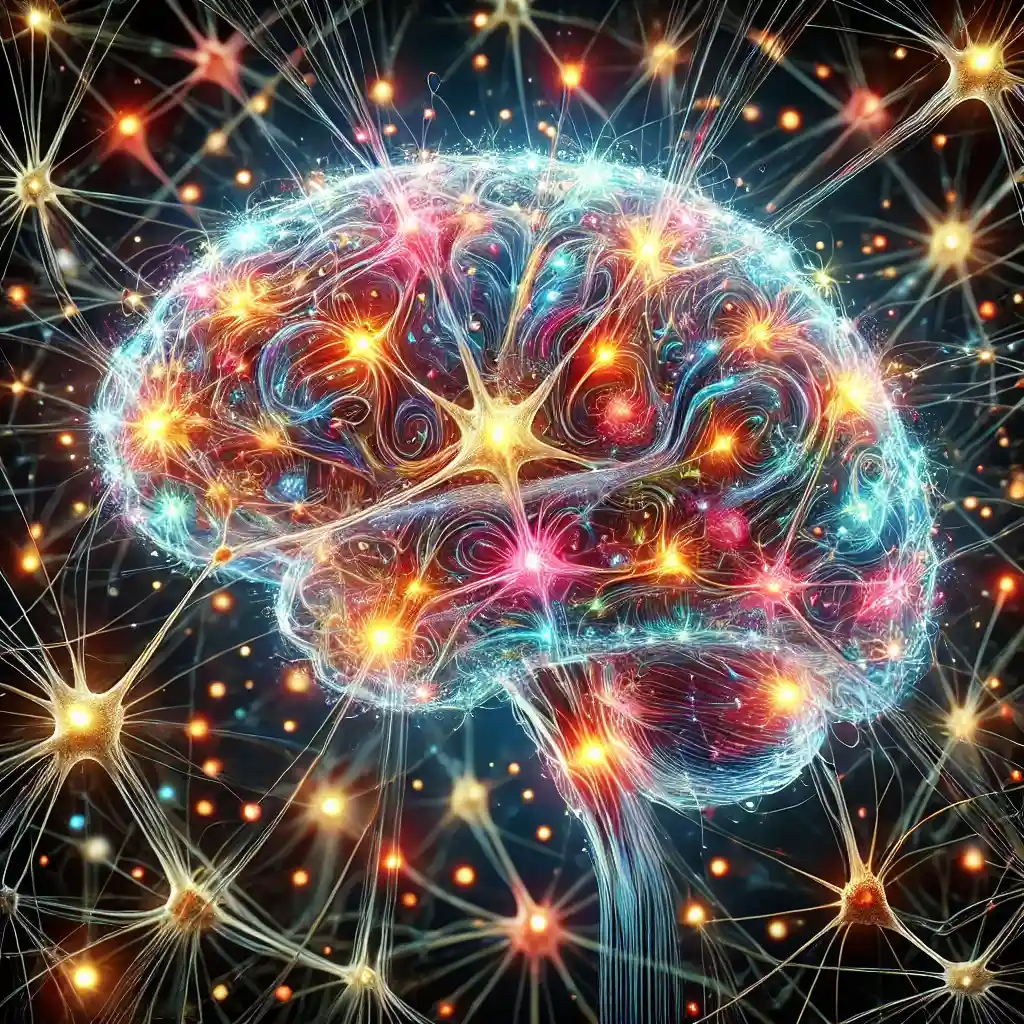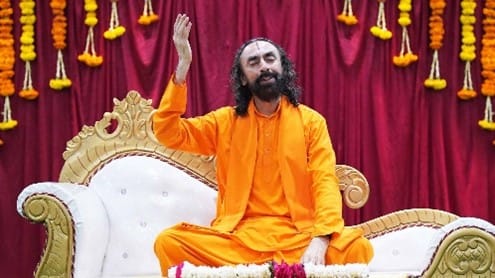The human mind is an enigma, filled with boundless potential yet challenging to tame. Arjun’s words in the Bhagavad Gita, verse 6.34, testified the same: “O Shree Krishna, the mind is obstinate and turbulent, more difficult to control than the wind.” Shree Krishna’s wisdom of Abhyas (practice) and Vairagya (detachment) provided the timeless solution to master it. These principles were eloquently explained by Swami Mukundananda, drawing from profound examples and divine teachings to help us navigate the complexities of life.
What is Vairagya?

Vairagya is often misunderstood as renunciation of the world, but it is, in fact, about not letting the world reside within you. Swamiji illustrated this with a powerful analogy:
"Like a boat is in the water, but the water is not in the boat, likewise you be in the world, but don't let the world be in you."
This distinction is vital. When attachment fills the mind, much like water filling a boat, it sinks under the burden. True detachment allows us to remain in the world yet rise above its entanglements. It is not about fleeing responsibilities but maintaining inner peace amidst the chaos.
What is Abhyas?
Abhyas, derived from Sanskrit, means consistent practice or effort. It emphasizes the disciplined and repeated application of effort to achieve mastery, whether in controlling the mind or perfecting a skill. Swamiji emphasized that our brains are infinitely programmable, capable of creating trillions of circuits with practice. The famous example of Mozart underscores this point.

Mozart, a German musician, composed music by the age of four years and mesmerized audiences by seven. His ability, particularly his rare gift of absolute pitch, seemed almost divine. Absolute pitch enables one to recognize musical notes without a reference scale, a skill that only one in 5000 possesses. Even world-class musicians like Beethoven lacked this ability.
Yet, research by Ayako Sakakibara, a Japanese teacher, challenged the notion that absolute pitch is innate. Through rigorous training, she helped 22 out of 24 children develop absolute pitch within 55 weeks. Her success demonstrated the brain’s infinite teachability, a testament to the power of practice.
Mozart’s talent was not merely an accident of birth. His father, an expert music teacher, ensured relentless practice, which honed his abilities. This teaches us that talent, while important, flourishes through sustained effort and repetition.
The Infinite Potential of the Brain

In various lectures, Swamiji has also highlighted how our brains, with their 100 billion neurons, can be trained to achieve extraordinary feats. Children can absorb skills like sponges due to a higher connectivity of neurons (axons) in their brains. This is why they effortlessly learn languages by mere observation. As adults, while it may take longer, consistent practice enables us to rewire our brains and unlock hidden potentials.
The Wisdom of the Bhagavad Gita

The Bhagavad Gita offers profound insights into the mind’s complexities. In Chapter 6, Verse 34 of the Bhagavad Gita, Arjun asked,
“chañchalaṁ hi manaḥ kṛiṣhṇa prma̅thi balavad dṛiḍham tasya̅haṁ nigrahaṁ manye va̅yor iva su-duṣhkaram”
"O Shree Krishna, the mind is obstinate and turbulent, more difficult to control than the wind."
Shree Krishna’s response, however, provided the solution:
“asanśhayaṁ maha̅-ba̅ho mano durnigrahaṁ chalam abhyāsena tu kaunteya vairāgyeṇa cha gṛihyate”
"Undoubtedly, the mind is difficult to control, but through Abhyas (practice) and Vairagya (detachment), it can be mastered."
Shree Krishna’s advice emphasizes the importance of effort and detachment. While Vairagya prevents external disturbances from overwhelming us, Abhyas ensures consistent progress in taming the mind.
The Expectation of God

Swamiji reflected on why God has made self-realization challenging. It is often observed that while people make life easy for their children, God challenges His children with difficulties because He wishes to see a perfect end product. If children are overly pampered, they may grow up without the resilience needed to face life's challenges. Similarly, God wants His devotees to become real, strong individuals. These challenges encourage them to fight against their inner weaknesses and develop mental fortitude and spiritual growth.
This analogy highlights God’s intention to develop strength and resilience in His children. These challenges serve as opportunities to grow spiritually and align with His vision of perfection. When we persevere, we transform into individuals capable of greater compassion, wisdom, and strength. Such a divine plan ensures that we evolve into our highest potential, ready to experience ultimate union with Him.
Swamiji’s Personal Journey of Practice
Swamiji’s own journey demonstrates the transformative power of practice. He mentioned that thirty years ago, he struggled with singing kirtans. People often left the room when he would sing. However, understanding the importance of devotional chanting in becoming an effective preacher, he dedicated himself to relentless practice. Over time, he developed proficiency in singing, enabling him to connect deeply with audiences and enhance his teachings.

This anecdote underscores the universality of Abhyas. Whether in overcoming personal challenges or developing new skills, perseverance can lead to a remarkable transformation. Swamiji’s journey is a testament to the fact that no obstacle is insurmountable with sustained effort.
Practical Application of Abhyas and Vairagya
- Detachment in Daily Life: Practice being present in the world without allowing its challenges to consume you. Remember, attachment is what creates suffering.
- Relentless Practice: Identify areas for growth and dedicate time daily to improve. Whether it is learning a new skill or managing emotions, consistent effort yields results.
- Mindful Awareness: Regularly observe your thoughts and emotions. Use the principles of Abhyas to redirect your focus toward positivity and growth.
Call to Action
Transform your life with the timeless wisdom of Swami Mukundananda. Embrace the principles of Abhyas and Vairagya to achieve inner peace and mastery over your mind. For more profound insights, subscribe to Swami Mukundananda’s YouTube channel and embark on a journey of self-discovery and enlightenment.
Visit the Radha Krishna Temple in Dallas

Discover the Radha Krishna Temple of Dallas, a sanctuary of devotion, learning, and community recognized as one of the best places to visit in the DFW area. The temple offers a serene environment for spiritual seekers of all ages.
- Children’s Programs: The temple hosts engaging activities and classes for children, nurturing values, creativity, and spiritual growth.
- Youth Programs: Dedicated programs for youth encourage leadership, personal development, and connection with spirituality.
- A Community Hub: Beyond its spiritual ambiance, the temple serves as a cultural and educational center, making it an enriching destination for families and individuals alike.
Whether you’re looking for peace, learning, or community, the Radha Krishna Temple of Dallas invites you to experience its vibrant programs and serene environment. Plan your visit today and immerse yourself in this sacred haven.








